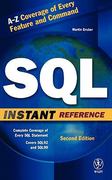Question
QUESTION:Select the 4 (four) public method of the BitwiseUtil class specified in the appendix and test using JUnit to retrieve data from files. package org.csystem.util;
QUESTION:Select the 4 (four) public method of the BitwiseUtil class specified in the appendix and test using JUnit to retrieve data from files.
package org.csystem.util;
public final class BitwiseUtil { private BitwiseUtil() {}
public static int clearBit(int val, int k) //k -> [0, 31] { return val & ~(1 << k); }
public static long clearBit(long val, int k) //k -> [0, 63] { return val & ~(1L << k); }
public static int [] indicesOfSetBits(char ch) { int [] bitIndices = new int[numberOfSetBits(ch)]; int index = 0;
for (int k = 0; k < 16; ++k) if ((ch & 1 << k) != 0) bitIndices[index++] = k;
return bitIndices; }
public static int [] indicesOfSetBits(byte val) { int [] bitIndices = new int[numberOfSetBits(val)]; int index = 0;
for (int k = 0; k < 8; ++k) if ((val & 1 << k) != 0) bitIndices[index++] = k;
return bitIndices; }
public static int [] indicesOfSetBits(short val) { int [] bitIndices = new int[numberOfSetBits(val)]; int index = 0;
for (int k = 0; k < 16; ++k) if ((val & 1 << k) != 0) bitIndices[index++] = k;
return bitIndices; }
public static int [] indicesOfSetBits(int val) { int [] bitIndices = new int[numberOfSetBits(val)]; int index = 0;
for (int k = 0; k < 32; ++k) if ((val & 1 << k) != 0) bitIndices[index++] = k;
return bitIndices; }
public static int [] indicesOfSetBits(long val) { int [] bitIndices = new int[numberOfSetBits(val)]; int index = 0;
for (int k = 0; k < 64; ++k) if ((val & 1L << k) != 0) bitIndices[index++] = k;
return bitIndices; }
public static boolean isSet(int val, int k) { return (val & (1 << k)) != 0; }
public static boolean isClear(int val, int k) { return !isSet(val, k); }
public static boolean isSet(long val, int k) { return (val & 1L << k) != 1; }
public static boolean isClear(long val, int k) { return !isSet(val, k); }
public static int numberOfClearBits(byte val) { return 8 - numberOfSetBits(val); }
public static int numberOfSetBits(byte val) { int count = 0;
for (int k = 0; k < 8; ++k) if ((val & 1 << k) != 0) ++count;
return count; }
public static int numberOfClearBits(short val) { return 16 - numberOfSetBits(val); }
public static int numberOfSetBits(short val) { int count = 0;
for (int k = 0; k < 16; ++k) if ((val & 1 << k) != 0) ++count;
return count; }
public static int numberOfClearBits(int val) { return 32 - numberOfSetBits(val); }
public static int numberOfSetBits(int val) { int count = 0;
for (int k = 0; k < 32; ++k) if ((val & 1 << k) != 0) ++count;
return count; }
public static int numberOfClearBits(long val) { return 64 - numberOfSetBits(val); }
public static int numberOfSetBits(long val) { int count = 0;
for (int k = 0; k < 64; ++k) if ((val & 1L << k) != 0) ++count;
return count; }
public static int numberOfClearBits(char val) { return 16 - numberOfSetBits(val); }
public static int numberOfSetBits(char val) { int count = 0;
for (int k = 0; k < 16; ++k) if ((val & 1 << k) != 0) ++count;
return count; }
public static int setBit(int val, int k) //k -> [0, 31] { return val | 1 << k; }
public static long setBit(long val, int k) //k -> [0, 63] { return val | 1L << k; }
public static String toBitsStr(char ch) { char [] bits = new char[16];
for (int k = 15; k >= 0; --k) bits[15 - k] = (ch & 1 << k) != 0 ? '1' : '0';
return String.valueOf(bits); }
public static String toBitsStr(byte val) { char [] bits = new char[8];
for (int k = 7; k >= 0; --k) bits[7 - k] = (val & 1 << k) != 0 ? '1' : '0';
return String.valueOf(bits); }
public static String toBitsStr(short val) { char [] bits = new char[16];
for (int k = 15; k >= 0; --k) bits[15 - k] = (val & 1 << k) != 0 ? '1' : '0';
return String.valueOf(bits); }
public static String toBitsStr(int val) { char [] bits = new char[32];
for (int k = 31; k >= 0; --k) bits[31 - k] = (val & 1 << k) != 0 ? '1' : '0';
return String.valueOf(bits); }
public static String toBitsStr(long val) { char [] bits = new char[64];
for (int k = 63; k >= 0; --k) bits[63 - k] = (val & 1L << k) != 0 ? '1' : '0';
return String.valueOf(bits); }
public static int toggleBit(int val, int n) { return val ^ 1 << n; }
public static long toggleBit(long val, int n) { return val ^ 1L << n; }
Step by Step Solution
There are 3 Steps involved in it
Step: 1

Get Instant Access to Expert-Tailored Solutions
See step-by-step solutions with expert insights and AI powered tools for academic success
Step: 2

Step: 3

Ace Your Homework with AI
Get the answers you need in no time with our AI-driven, step-by-step assistance
Get Started


